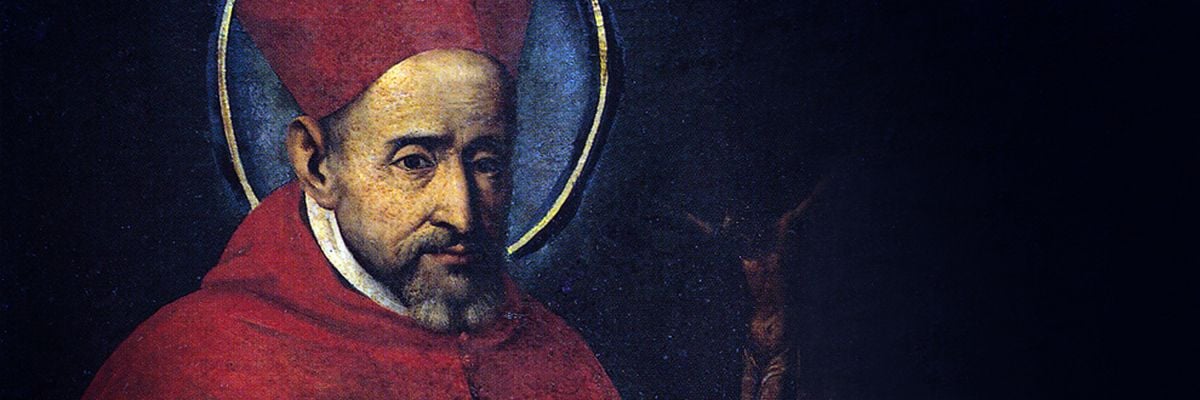
Robert Bellarmine was perhaps the most effective theologian and apologist for the Catholic Church during the Counter-Reformation battles with Protestantism. His success was obtained through his logical, temperate reasoning rather than through mere dogmatic assertions. Many returned to the Church because of his rational arguments and saintly manner.
Robert Frances Romulus Bellarmine was born in Tuscany, Italy on October 4, 1542. His mother, Cinthia Cervino, was the sister of Pope Marcellus II. Over his father’s objections he joined the Society of Jesus in 1560 and began a study of Aristotelian philosophy.
He went on to study at Florence, Padua, and Louvain; he concentrated his studies on Scripture, Hebrew, patristics, and Church history in order to defend the Church from the heresies of the Protestant Reformers. He became the first Jesuit professor at Louvain, where he lectured on the Summa Theologiae of St. Thomas Aquinas.
After his ordination at Ghent in 1570, Bellarmine was recalled to Rome to teach theology at the newly founded Roman College. Later he became its rector. He held the chair of controversial theology while producing his major work, The Controversies, an apologetic defending the teachings of the Catholic Church and effectively refuting Reform theology. This writing proved so effective in bringing people back to the Church that academic centers were created in Protestant universities solely to respond to it.
Bellarmine played a leading role in preparing the Clementine revision of the Vulgate Bible, writing the introduction in 1592. Shortly thereafter he was made provincial of the Naples province for the Society of Jesus and raised to the cardinalate by Pope Clement VIII.
King James I of England entered into a written debate with Bellarmine over the temporal power of the pope; James denied it existed. Thomistic political philosophy led Bellarmine to the conclusion that the pope may justly wield temporal power where temporal matters affect spiritual matters. This view of limited papal civil power aroused the hostility of many in Rome, including Pope Sixtus V.
Bellarmine also became involved in the case of his friend Galileo. He convinced Galileo to agree to declare his findings as hypotheses for the time being, at least until they could be irrefutably proven.
The last years of Bellarmine’s life were dedicated to writing spiritual works including the Art of Dying Well and a commentary on the psalms. He died in Rome on September 17, 1621. He was canonized in 1930 and declared a Doctor of the Church in 1931.


